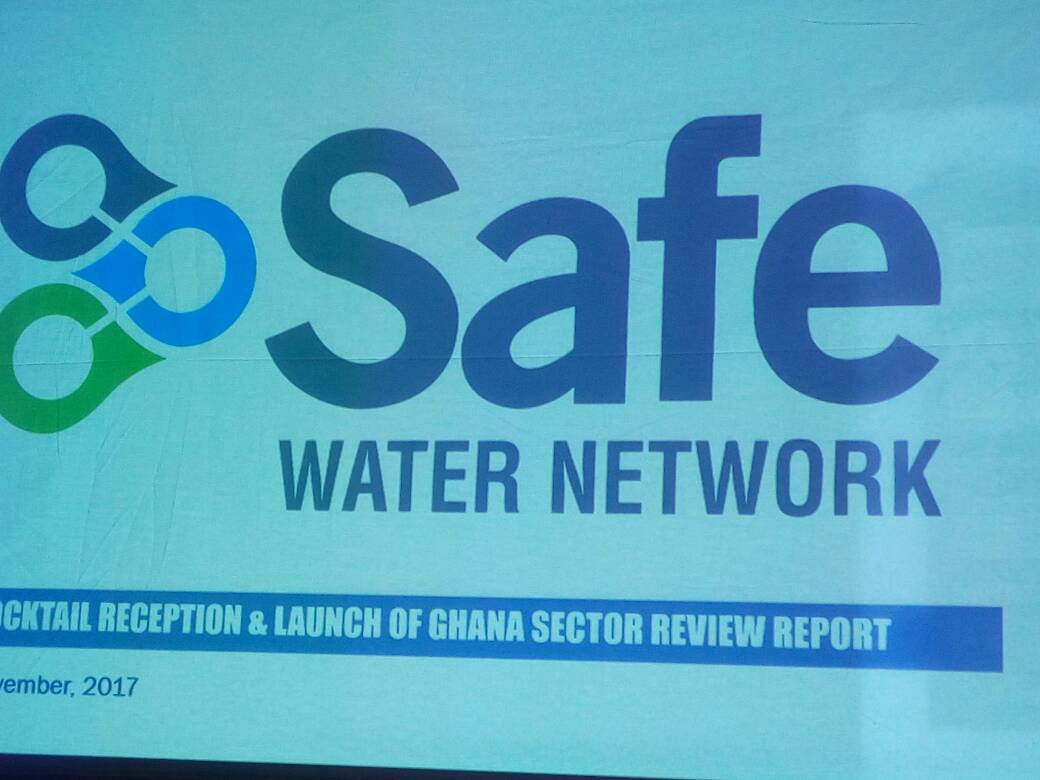
SAFE WATER Network, a US-based Non-Governmental Organisation (NGO) with its branch in Ghana is calling on Government and other NGOs to support its quest in providing safe water to over 1000 communities in the country.
According to Safe Water Network, which has been operating in the country for the past nine years, its main objective is to apply business principles to manage “our local water systems to cover the over 30% to 40% of our water systems being broken in Ghana.”
Mr Charles Nimako, Director, Africa Initiatives, Safe Water Network told the Kasapa FM during the launch of Ghana Sector Review; Scaling Small Water Enterprises in Accra that “money needed to repair the broken systems.”
According to him, “Safe Water Network has been able to provide water for 120 communities in the country so far and are looking to expand to 1000 communities over the coming years, but to be able to attain that goal, we are calling on government and other Non-Governmental Organisations to come on board to help achieve their target.”
He said for each community they serve, it takes between three and six months to build a water station, “but what we require first of all is the availability of land in the community.”
So far, he said, this project has covered the Greater Accra, Central and Volta regions and has spent close to of $10 million since 2010.
Review of opportunities
He said, in collaboration with partners and stakeholders, Safe Water Network recently completed this review of the opportunity to scale-up Small Water Enterprises in Ghana.
The review he said puts forward several policy recommendations to overcome the barriers to reach an estimated 3.2 million of the 8.3 million people lacking access to safe water in rural in the country.
“Trends across the sector are working in our favor. The Government of Ghana’s vision for achieving water for all in Ghana by 2025, along with the Sustainable Development Goals, are attracting heightened attention on opportunities to reach communities that lack access to safe water.
“Coincident with this is an increased emphasis on market-based solutions that encourage local accountability and provide financial incentives throughout the value chain. Moreover, we are very encouraged by the Ministry of Sanitation and Water Resources’ commitment to strengthen its institutional structure, support new models and approaches – including small water enterprises – and bring increased focus to public private partnerships,” he stated.
“Some of the recommendations made in this Sector Review are already in development. This includes creation of a Ghana Water Enterprise Trust to attract the capital needed to scale-up Small Water Enterprises; the development of regional technical servicing capabilities for maintenance and repairs; and the piloting of a public private partnership project. “We look forward to advancing these initiatives along with other recommendations in the review with the guidance of the Government of Ghana and the Small Water Enterprise Working Group which is composed of a cross section of water sector leaders,” he explained.
